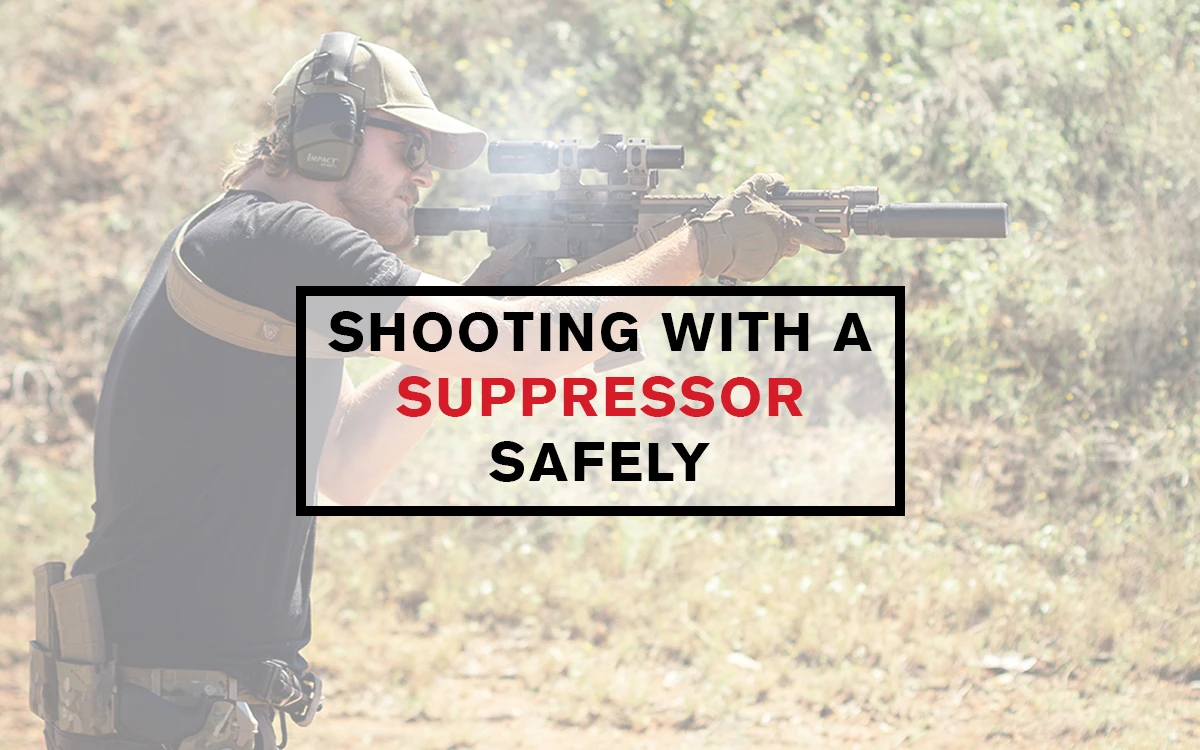

Despite what you might see in Hollywood, firearm suppressors are best categorized as a safety device. They provide a radical reduction in noise that makes shooting, above all, easier on the ears.
That said, there is a right way to use them, as there is with any firearm or accessory. Here are a few tips to follow if you want to avoid unnecessary injury to yourself or unnecessary damage to your prized suppressor.
Mounting
The number one safety priority with suppressors is mounting it properly. Direct thread suppressors are simple, more affordable and generally more accurate, but they carry the unique risk of "backing off" — coming loose and potentially flying off the firearm when firing heavily.
The consequences of a silencer backing off are potentially quite costly. It can result in a baffle strike, meaning that the bullet strikes and deforms the internal structure of the suppressor, an issue which will negatively affect the performance of the item going forward. It can also cause damage to the threads on both your firearm and your host gun, which is a huge hassle to rectify.
So, (and this goes for non-locking QD suppressors as well), make sure your suppressor is securely mounted. Check both before shooting and intermittently as you shoot.
Unmounting — cooling off
If you've learned how hot suppressors can get by experience, you need no reminders. Suppressors are designed to capture and muffle the searing hot gasses expelled when a bullet is fired, so it should be no surprise the silencers can heat up as this occurs. It doesn't take long for a suppressor to reach several hundred degrees — more than enough to fry an egg, if you don't happen to have a frying pan.
Give your suppressor some time to cool off, and be careful not to handle it for several minutes after shooting. Otherwise you will get burned.
Shooting with ear protection
Silencers do a lot to reduce the sound produced by a firearm, hence the name. But as we’ve mentioned previously, it’s not the movies. There are no John Wick shootouts in the subway where no one notices the shots. Depending on the caliber, a silenced gunshot is still rather loud, though a lot quieter and safer than it would be. While you can get many firearms into the “hearing safe” category, it still isn’t recommended that you expose your ears to an extended range day. Specifically, 5.56 and other popular rifle calibers, even when suppressed, can be unpleasant to shoot for long durations. Prolonged exposure to sounds just shy of dangerous can still cause long-lasting negative effects on your hearing.
How to safely shoot a suppressor "wet"
This article is primarily about safety, and pouring water into your firearm would seem to be anything but. However, if done correctly, “wet shots” can offer some significant suppression and not to mention coolness points. So if you are going to do it, here are some things to keep in mind.
There are a few benefits to shooting your suppressor "wet." First of all, it can help eliminate first round pop — the tendency of the first suppressed shot to be louder than the rest, owing to the presence of oxygen inside the can. Second, it can help make your shots even quieter, if only for a few shots. And lastly, it's fun, like a middle school science experiment.
You can use any non-flammable liquid, even some water-soluble lubricants like wire pulling gel, to wet your suppressor. But the lubricant must be water-soluble, not petroleum-based. Petroleum-based lubricants leave behind gunk that's hard to clean out and raise the risk of impeding the bullet path, potentially causing a baffle strike.
When wetting your suppressor, it's best to pour about a teaspoon of water into the can before shooting. This works best with rimfire and pistol suppressors — we do not recommend adding water to a rifle suppressor in most cases. Be careful not to get any water down the barrel of the firearm, because this can cause dangerous malfunctions. All of the water will usually evaporate within five shots. Try it out, and enjoy the difference!
Conclusion
With these safety tips in mind, you can avoid damaging your suppressor, your firearm, or yourself. Stay smart and safe!





